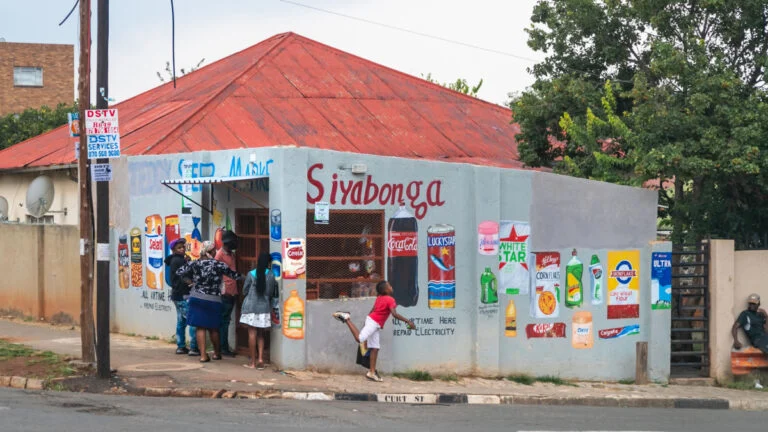South Africa’s hidden R750 billion economy attracting JSE-listed companies

South Africa’s informal economy has grown strongly over recent years, and its size is starting to attract the interest of JSE-listed companies seeking revenue streams beyond traditional ones.
The informal sector has long been a hidden area of economic activity that was overlooked as too difficult for formal companies to compete in.
It has always been important as a site of job creation, as South Africa’s formal economy cannot absorb the number of unemployed people in the country.
Many South Africans who cannot find employment in the formal economy turn to the informal sector to earn a living, often as entrepreneurs.
While the informal sector is not the preferred option as it pays lower remuneration, its role in supplementing income is crucial.
According to FinScope consumer data, the average personal monthly income in the informal sector was R4,199, higher than the national average (R3,864) and minimum wage (R3,710).
Informal economy expert GG Alcok explained that the informal economy mirrors the structure of its formal counterpart with multiple sectors and subsectors.
The informal economy is dominated by the spaza shop and superette sector, which is similar to the formal retail sector.
Alcock estimated that this sector is worth around R180 billion and has over 600,000 stores.
Overall, the informal economy is worth around R750 billion, with some estimates saying it is worth even more.
It is also growing strongly compared to its stagnant counterpart, which has had an average growth rate of around 1% for the past decade.
This has led to large JSE-listed companies becoming increasingly interested in operating in this economy.
Property companies, particularly shopping mall developers, have been operating in the informal economy for well over a decade.
Stanlib’s head of property, Nesi Chetty, said the informal economy has grown at a staggering rate in the past decade and has led to increased demand for higher-end products from the formal economy.
“There is a clear appetite among increasingly affluent consumers in township communities for formal retail within easy reach, creating a strategic growth opportunity for larger retail chains,” Chetty said.
Furthermore, retailers are looking beyond the saturated higher-income market for growth. Their involvement in this economy will create employment and offer consumers greater choices and lower prices.
For example, Shoprite has rapidly expanded its Usave offering in townships and around informal settlements.
South Africa’s largest food producer, Tiger Brands, announced plans to have its range of products available in around 150,000 stores within the next five years.
However, the biggest JSE-listed beneficiaries have been property companies that have benefitted from the strong growth and resilience of the informal economy.
These players include companies such as Vukile, Resilient, Fairvest, and Exemplar, who have reported good results from their property portfolios within the informal economy.
Chetty said Vukile saw a surge in activity in its latest full financial year, with a 10% rise in overall trading density and a 12% increase in grocery sales.
The company’s rural shopping mall portfolio indicates the strength of the informal economy, with near-full occupancy.
This highlights the flourishing business environment in Vukile’s townships and rural areas, exemplified by successful malls like Phoenix Plaza, Gugulethu Square, Dobsonville Mall, Daveyton Shopping Centre, and Atlantis City Shopping Centre.
Resilient’s strategy of focusing on major shopping centres with established anchor stores and national brands is proving successful, Chetty said.
Key properties like Tzaneen Crossing and Galleria Mall are experiencing strong sales growth, particularly in the Northern Cape. Vacancies are low across their portfolio, and rents on lease renewals are rising significantly, indicating high demand for space.
This trend of national retailers seeking more space extends to other property groups.
Fairvest, with shopping centres like Sebokeng Plaza and Bara Precinct, is also seeing rising rents and low vacancies. Shoprite Checkers, Pick n Pay, and other major chains are driving this demand.
Exemplar, a company specialising in township and rural retail, is experiencing similar success.
Their malls, such as Diepkloof Mall and Alex Mall, boast low vacancy rates and strong rental growth on renewals. This highlights the potential for future growth in this niche market.

